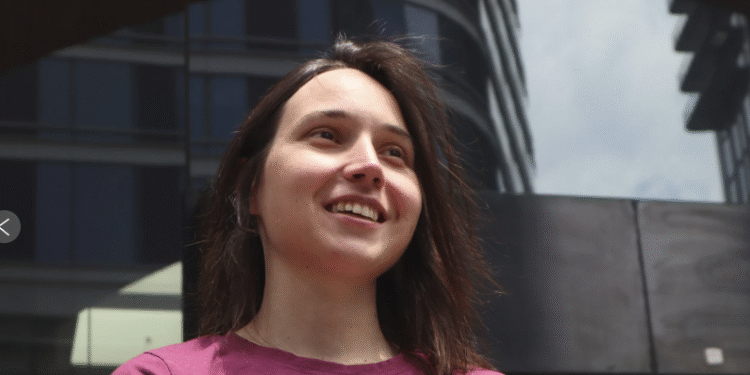A Russian-born Harvard University researcher charged with smuggling frog embryos into the U.S. walked free on bail Thursday, sharing hugs and laughter with supporters after her release from federal custody.
“I just want to thank everybody,” said Kseniia Petrova, 30, outside the John Joseph Moakley United States Courthouse in Boston. Dressed in a T-shirt that read “Hakuna Matata,” Petrova smiled and expressed gratitude for the support she received during her time in custody.
“A lot of people started contacting me and sending me letters, and it was a huge support without which I won’t be able to survive,” she said. “I never really felt alone any minute when I was in custody, and it’s really helped me very much.”
Petrova, who had been in custody since February, appeared in court Thursday wearing an orange jumpsuit. Lawyers from both sides agreed to terms for her release, which included travel restrictions. Authorities retained her passport. A probable cause hearing is scheduled for next week.
“I hear it’s sunny. Goodbye,” said Magistrate Judge Judith Dein after approving her release terms.
Petrova’s attorney, Greg Romanovsky, said she’s still deciding whether to remain in the U.S. “She has offers from different countries around the world, countries that are eager to support the important research that she’s doing,” he said. “She’s weighing her options at the moment, and she’s very grateful to be out.”
Earlier this year, Petrova returned from a vacation in France, where she visited a lab specializing in slicing superfine sections of frog embryos. She brought back a package of samples for her research. U.S. Customs and Border Protection questioned her at Boston Logan International Airport, where officials later canceled her visa.
Following the interrogation, she was briefly held by immigration officials in Vermont, then transferred to an ICE facility in Louisiana, prompting her to petition for release.
The Department of Homeland Security claimed she lied to federal officers and intended to smuggle the embryos without declaring them, citing phone messages as evidence. But Petrova told the Associated Press in April she didn’t realize the samples needed to be declared and denied any intent to smuggle.
In May, federal prosecutors charged her with smuggling in Massachusetts. A judge in Vermont later ruled that immigration officials had unlawfully detained her, stating she posed no threat and that the embryos were nonliving, nonhazardous, and harmless.
Although she was released from ICE custody following the ruling, she remained in the custody of the U.S. Marshals Service on the smuggling charge until Thursday.
Supporters and academic peers have spoken on Petrova’s behalf, emphasizing the value of her research in advancing potential cancer treatments.









